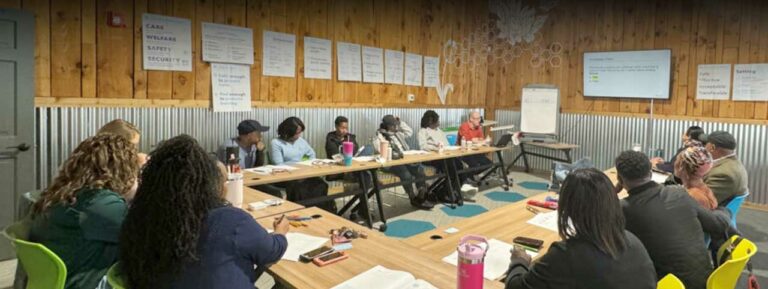Simple Tips for Your First Foster Child Placement
If you’re a new foster parent entering this world for the very first time, one of the occasions you likely look forward to most of all is getting the call for your first placement. It’s very exciting to know that your first foster child has been placed in your home and will soon be arriving — but it’s also important to contain yourself long enough to make some simple preparations before this happens.
At Bloom Our Youth, we’re proud to offer numerous resources for would-be foster parents, from reasons to consider fostering to assistance with getting started, ongoing foster care support, and more. What are some of the chief areas we often talk to first-time foster parents about as they prepare for their first placement? Here are a few to keep in mind.
Ask Numerous Questions
While many key areas of information about your new foster child will be provided to you by your caseworker, it’s also important to ask any questions you may have. No question is too small or unimportant — after all, this child will be coming into your home, and you need to make sure that both they and you are as comfortable as possible given the situation.
These questions can range widely, from the child’s past medical history to their favorite foods and colors, to what kind of sleeping arrangements they’re used to. If you have any questions at all, make sure to ask them — the more information you have, the better off everyone will be.
On the journey towards becoming a licensed Bloom foster parent, prospective foster parents are able to provide Bloom information about any foster child placement preferences. The placement preferences questionnaire covers the foster parent’s comfort level with various cultures, genders, ages, medical issues, as well as mental health and behavioral needs.
Bloom’s goal is always to match a foster child with a foster family that is able to provide the best care possible in an environment that considers and respects the child’s cultural background so that the foster child can feel safe, comfortable, and respected quickly and begin the journey towards healing and thriving. To achieve this, you will have many conversations with Bloom’s Family Consultant and Licensing Specialist where you will be able to ask any questions.
Work-Hours Child Care Plan
Some foster parents have to balance their foster parenting with full-time jobs outside the home. Obviously, this can make things more complicated when a foster child arrives, as you’ll need to have some form of child care in place. This is why it’s so important to put together a child care plan well in advance of your first placement.
Every foster parent who fosters children between the ages of 6 weeks and 12 years is eligible to receive free childcare through the Childcare Assistance Program (CAPs). If a foster parent encounters a unique childcare issue that is not covered through the CAPs program, then it is strongly encouraged that the foster parent develop a childcare plan. During the home study portion of the foster parent application process, Bloom’s Licensing Specialist will discuss childcare options with you in detail. Foster parents are able to identify substitute caregivers to help when alternative childcare options are not available. All substitute caregivers—babysitters, nannies, etc.—must be willing to complete necessary background
The important thing is to have a plan in place so that you’re not scrambling to find child care at the last minute. This will help reduce stress for both you and your foster child and make the transition into your home much smoother overall. Bloom’s team will be available to help you and answer your questions throughout the foster parent application process.
Be Prepared Emotionally
Of course, one of the most important things to keep in mind when preparing for your first foster parent placement is that it’s not just about logistics — it’s about emotion, too. This is a big step for you, and it’s also a very big deal for the child who’s being placed in your care.
You’ll need to be prepared to handle a wide range of emotions, from your own anxiety and excitement about the situation to the child’s fear and confusion at being placed in a new home. It’s okay to feel all of these things, but it’s important to be aware of them and to understand that they’re perfectly normal.
If you can go into your first foster parent placement with your eyes open to the emotional challenges that may arise, you’ll be in a much better position to deal with them effectively when they do.
Childproofing Themes
Depending on the age of the child you’re expecting to be placed with you, you may need to do some childproofing around your home. This is especially important if you have young children of your own, as they may not be used to being around other kids and may not know how to act appropriately.
Childproofing can involve anything from making sure harmful chemicals are locked up and out of reach to childproofing electrical outlets and keeping small objects away from areas where kids might be able to choking on them. Again, your caseworker will likely be able to give you some guidance on what specific childproofing measures you should take in your home. But it’s always better to err on the side of caution when it comes to the safety of kids.
Be Prepared for New Behaviors
Many of the children who are placed in foster care have come from difficult backgrounds. As a result, they may have developed some behaviors that are unfamiliar to you. It’s important to be prepared for this possibility, and to understand that these behaviors are not personal attacks on you or your family.
Some common behavioral issues that foster children may exhibit include defiance, impulsivity, aggression, and even self-harm. Again, your caseworker should be able to give you more information on what to expect from the child who’s being placed in your care. But it’s always best to be prepared for anything, so that you can deal with it effectively if and when it does arise.
Be Confident
Finally, too many of our foster parents doubt themselves or their abilities to care for a foster child. But the truth is, if you’ve been approved to be a foster parent, it’s because caseworkers believe that you have what it takes to do this job. So don’t be afraid to put your faith in yourself, and trust that you’ll be able to handle whatever comes your way.
For more simple tips on how to prepare for your first foster child placement, or to learn about any of our foster care agency services and resources in Atlanta and nearby areas, speak to the caring staff at Bloom Our Youth today.





